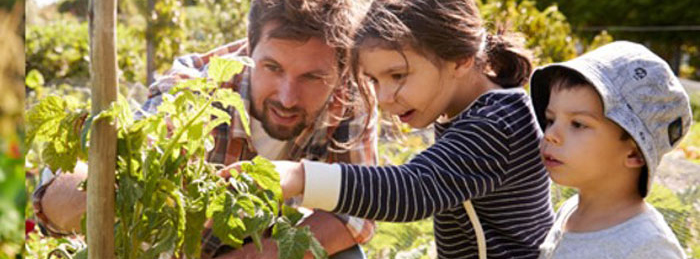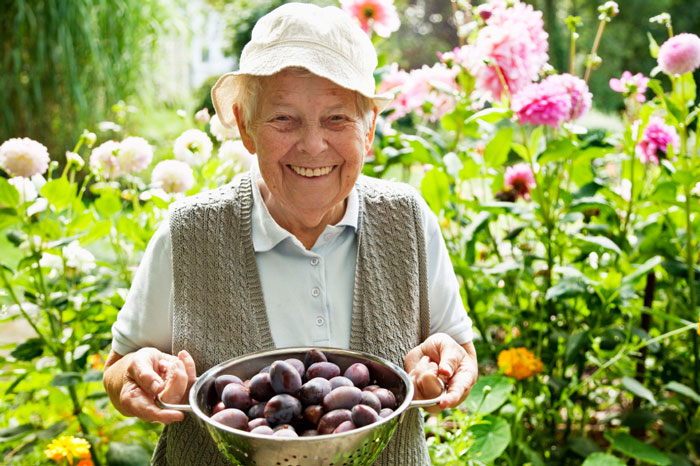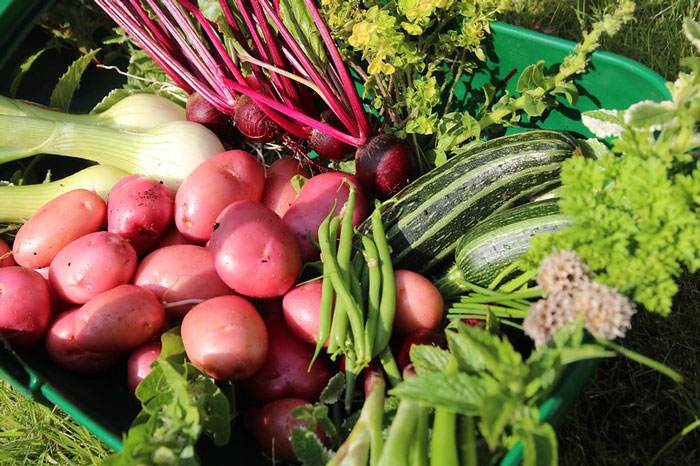Taking an environmentally sensitive approach to pest management
April is National Gardening Month: Get Out and Grow
Published: April 10, 2020

"The love of gardening is a seed once sown that never dies"
-Gertrude Jekyll
The origin of National Gardening Month can be traced back to 1986 when President Reagan declared April 12-18 as National Gardening Week. The legislation that resulted in the proclamation was sponsored by the National Garden Bureau. The latter is a non-profit organization that exists to "educate, inspire, and motivate people to increase the use of plants in homes, gardens, and workplaces". This year (2020) happens to be the centennial anniversary of this organization.
National Gardening Week was observed yearly in April until 2002 when the entire month of April was dedicated to "all things gardening". Again, the National Garden Bureau was instrumental in making the change from observing a single week to an entire month.
A quote from President Reagan's 1986 National Gardening Week proclamation is an eloquent testimony to the importance of gardens and gardening. The proclamation stated: "All gardeners know the innumerable benefits that gardening brings to people and their communities, and this is a month where we can spread that message to those who aren't directly involved. All around the country, educational activities, public events, government proclamations, local plant sales and swaps, and garden center seminars, are all occurring this month, building excitement and increasing participation in gardening".

The benefits of gardening are numerous and well-documented. However, scientists are just beginning to unravel some of the mysteries of why gardening is good for people. For example, it has long been recognized that, for many, "digging in dirt" relieves stress and improves mood. In a remarkable finding reported by researchers at the University of Bristol, UK, it was discovered that Mycobacterium vaccae, a group of non-pathogenic bacteria abundant in soil, increased levels of serotonin and decreased levels of anxiety in mice. It is conceivable the same can happen in humans. Thus, the fact that working in a garden makes one feel happy might have an underlying cause that can be explained by science.
From the standpoint of other personal benefits, gardening is good exercise that promotes heart health and assists with weight control. It reduces the risk of stroke by lowering blood pressure and has been shown to delay the onset of dementia. In addition. growing a garden can teach youngsters responsibility as they gain self-esteem and personal satisfaction from successfully accomplishing a task. In an era when family schedules and other distractions make it difficult to interact, gardening affords the opportunity for family member of all ages to strengthen relationships and form deeper bonds.

From an economic point-of-view. vegetable gardening is a great way to save on the family food budget as well as to promote healthy eating. In a decade-long study conducted several years, Burpee Seed Company demonstrated a 25:1 return on investment of money spent on gardening supplies. In order words, for every dollar spent on items such as seeds, fertilizer, etc., gardeners can expect to harvest $25 worth of produce. Additionally, it has been documented that families who grow their own vegetables tend to eat more off them, thus promoting better nutrition.
Also, gardening is good for the environment. Plants filter the air and help curb soil erosion as they lower our "carbon footprint" in several ways. Plants remove carbon dioxide from the air as the carry out photosynthesis. Additionally, food grown locally in a garden does not have to shipped great distances, reducing the amount of carbon dioxide produced by trucks. The ecosystems formed within a garden help to add to the diversity of plant and animal life. Among this diversity are an increased number of pollinators which are important in food production.

In short, additional to supplying us with fresh fruits and vegetables to tempt our palates, gardening provides us with an incredible display of nature's beauty in the form of flowers, trees and shrubs. Gardening is a wholesome pastime for some and a passion for others that fosters a concern for environmental preservation and enhancement. A segment of agriculture, gardening instills in its practitioners a healthy respect for all those who work to feed our nation and world. Perhaps above all, it is a source of personal wonderment when soil and sunlight come together to nurture the miracle of plant growth.
The bottom line is it's not how you garden that matters. Large or small, organic or conventional, filled with heirloom varieties or the latest hybrids matters not. The important thing is to garden. If you are an avid gardening, relish the growing season ahead. Gardening adds years to your life and life to your years. If you don't garden, you might want to heed the advice of an ancient Chinese proverb that states "Life begins the day you start a garden." There is no better time than National Gardening Month to begin.
Subscribe to receive similar articles sent directly to your inbox!
- April Gardening Tips (03/25/25)
- April Gardening Tips (03/15/24)
- Spring into April with Season-Inspired Plants (04/05/23)
REVISED: April 10, 2020